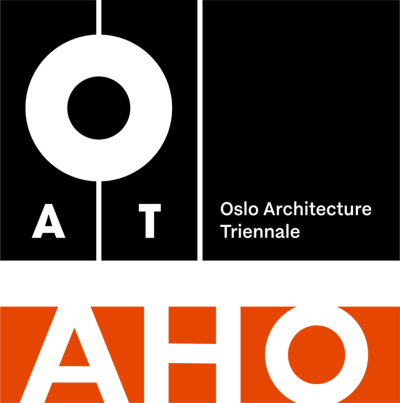Maridalsveien 29
0175 Oslo
Norway
On Thursday, February 7, 2019, at 6pm e-flux Architecture and the Oslo Architecture Triennale will present Overgrowth Talks at the Oslo School of Architecture and Design. Join Overgrowth editors Phineas Harper and Nikolaus Hirsch for a series of presentations and conversations with Ingerid Helsing Almaas, Helena Mattsson, Edgar Pieterse, and a response by Marianne Skjulhaug, around the challenge of growth-based cities and bold alternatives for the architecture of a new economy.
Architects and urban practitioners, toiling daily at the coalface of economic expansion, are complicit in the perpetuation of growth. Yet they are also in a unique position to contribute towards a move away from it. It is through architecture and urban practice that alternative values, systems, and logics can be manifest in built form and inherited by generations to come.
The event will be livestreamed here.
“Every city inevitably offers its particular disappointments. Perhaps it is these failures, rather than the usual postcard snapshots of perfection, that best describe the dynamics of a city? The things that are missing, unfinished, still undone, rather than the supposed satisfaction of things that worked, ideas that were realized, the sensible agreements, the satisfying compromises? Satisfaction and disappointment are both born of expectation. And what is a city, if not a field of expectations? The city is not; it is always becoming. A city may have a name, like “Oslo,” but it is not an object; it should be a verb, not a noun.”
—Ingerid Helsing Almaas, “No app for that”
Ingerid Helsing Almaas is an architect. She is a writer and critic for publications at home and abroad, and was editor-in-chief of Arkitektur N, the Norwegian Review of Architecture, from 2004–2017. She is currently a Senior Advisor at Design and Architecture Norway, DOGA.
“Implemented as a control system across public sectors, deregulations came with a new understanding of public good, forged on a conception of the individual in relation to market forces. Operating to establish a new social contract or “trust,” Swedish citizens were addressed as consumers assigned with the responsibility of rational economic behavior in assessing and choosing goods on markets for housing, health care and education. If the welfare system of regulations had served as a strategy to fulfil the needs of consumers, the calls for their dismantling in the 1990s were based on the argument that “client demand” would put pressure on public producers or providers and act directly in the market. This meant a redefinition of housing, from a basic human right into an object of desire.”
—Helena Mattsson and Catharina Gabrielsson, “Pockets and Folds”
Helena Mattsson is an architect and a professor in history and theory at KTH School of Architecture. Her research deals with 20th century theory on welfare state architecture and contemporary architectural history with a special focus on the interdependency between politics, economy, and spatial organizations.
“The vast majority of urban Africans experience routine exclusion from basic services (i.e. energy, safe water, dignified sanitation, safety, waste collection, and access to public space) and have some access to poor quality education and health care. They are left to their own devices, which creates a plethora of networks, groups, alliances, associations, social expectations, and reciprocities that make for incredibly dense and demanding patterns of socio-cultural life. Hybrid and convoluted patchworks of service delivery systems emerge in this vacuum. The necessary work of being socially embedded and always hustling produces a social economy of interdependence, reciprocity, intelligence, and attentiveness. This cultural fabric holds the key to decipher a different framework of incorporation that may yet alter the terms of urban life.”
—Edgar Pieterse, “Incorporation and Expulsion”
Edgar Pieterse is founding director of the African Centre for Cities and holds the South African Research Chair in Urban Policy, both at the University of Cape Town. He is consulting editor for Cityscapes, an international biannual magazine on urbanism in the global South.
Marianne Skjulhaug is an architect and associate professor at the Oslo School of Architecture and Design, devoted to urbanism and landscape. She is also vice president in Europan Norway. From 2007 to 2012, Skjulhaug was the Rector of the Bergen School of Architecture.
Overgrowth is a collaboration between e-flux Architecture and the Oslo Architecture Triennale within the context of its 2019 edition.



